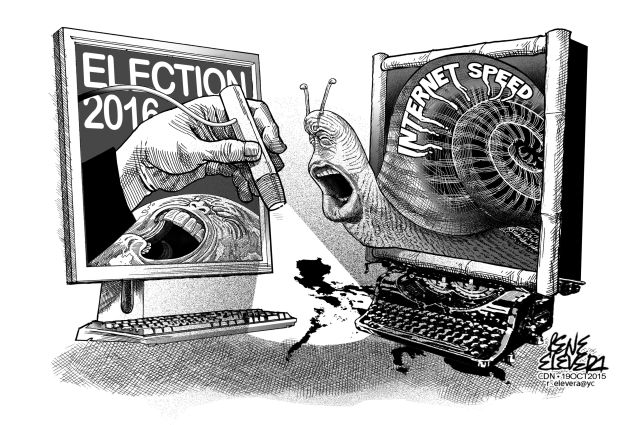 Amid the noise and hoopla of last week’s filing of candidacies come the resulting analysis of political scientists, media personalities, netizens and the armchair analysts.
Amid the noise and hoopla of last week’s filing of candidacies come the resulting analysis of political scientists, media personalities, netizens and the armchair analysts.
One such analysis worth evaluating was made by Inquirer columnist Cielito Habito, who told officials of the Management Association of the Philippines that the next administration should continue the reforms started by the Aquino administration.
While he didn’t specify what reforms, Habito clearly referenced the increased transparency, accountability and crackdown on corruption and bureaucratic red tape that had been prevalent during the tenure of President Benigno Aquino III’s predecessor.
The reforms, while significant, aren’t substantial enough, at least according to Vice President Jejomar Binay, who said that what the country needs is not “Daang Matuwid” (Straight Path) advocated by Aquino but “Daang Mabilis” (Swift Path).
But even Binay must realize the value of the sayings “haste makes waste” and “the road to perdition is paved with good intentions.” That in his promise to deliver services, reforms and programs to constituents, Binay may execute shortcuts that will compromise on quality, transparency and accountability.
Or maybe, as his critics are wont to say, that’s what Binay wants — expedient solutions that mask whatever monkey business and irregularities that may take place in the implementation of government projects.
In his talk with MAP, Habito said the next administration should prioritize infrastructure projects that will encourage investors and tourists to pour money into the country.
While the President may have no major corruption charges raised against him other than the pork barrel allegations, the major infrastructure projects he promised are being seen only now by Filipinos curiously in time for election season.
We mention the passenger terminal project at the Mactan Cebu International Airport and the S. Osmeña Road improvement project as examples. That doesn’t include the billions of pesos worth of road projects in Mandaue City that will be completed sometime next year, conveniently months ahead of the elections.
Regardless, one other major infrastructure project that should be prioritized is building a reliable broadband network in order to speed up Internet connection in the country.
President Aquino’s predecessor pursued a broadband network project that got mired in corruption and controversy after two competing interests engaged in a battle for “commissions” from the Chinese ZTE network.
With business process outsourcing (BPO) firms being a major earner in the country, a broadband network project is a no-brainer. That said, partnerships between government and the private sector remain essential not only to ensure accountability but also to make the country more competitive in a world whose borders are eventually disappearing due to interconnectivity.
Disclaimer: The comments uploaded on this site do not necessarily represent or reflect the views of management and owner of Cebudailynews. We reserve the right to exclude comments that we deem to be inconsistent with our editorial standards.
